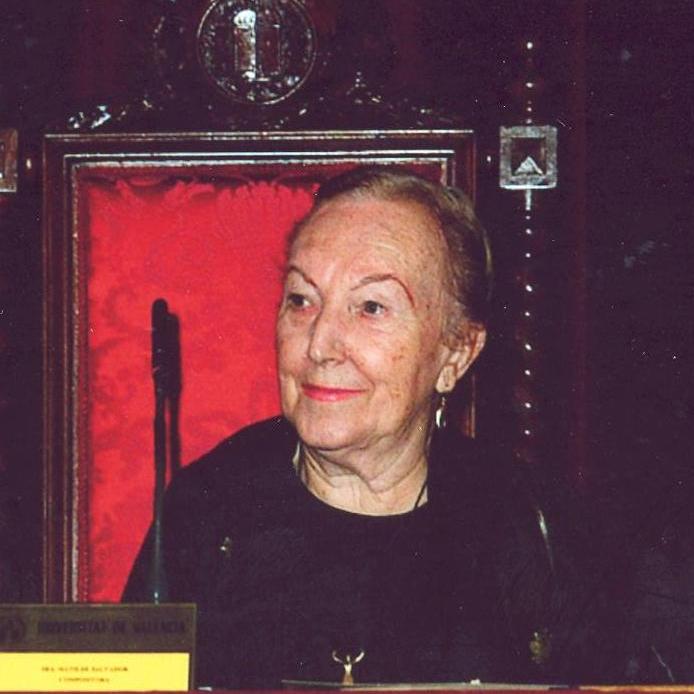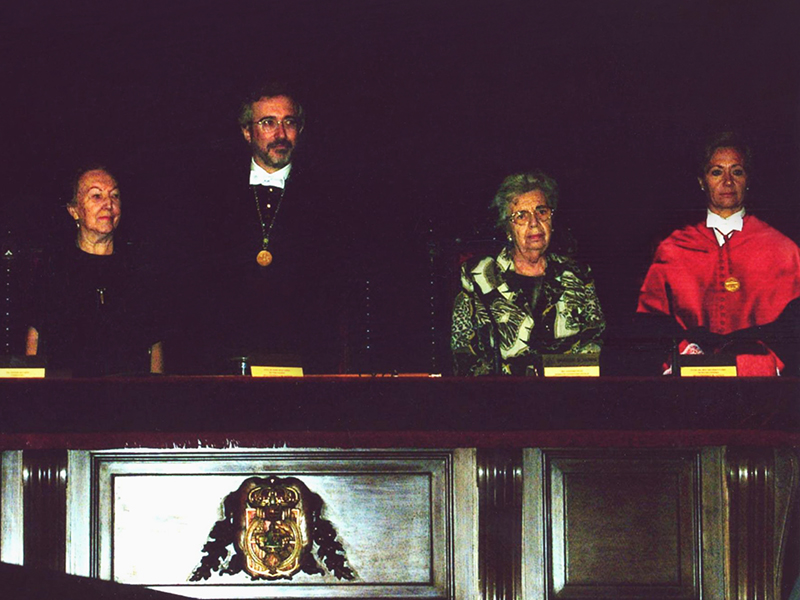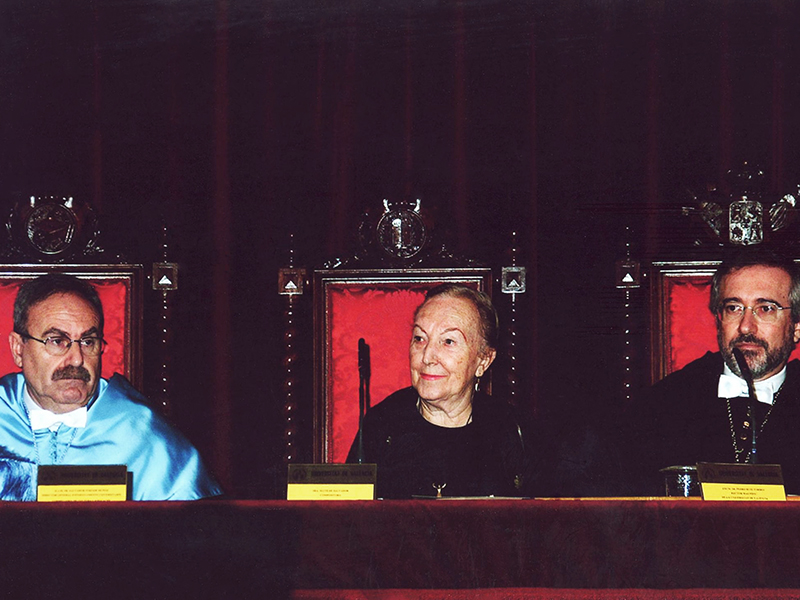
Date of granting: 26 september 2001.
By proposal of: V Segles Comissio Organitzadora (Organising Committee V).
Date of deliverance: 31 october 2001.
Matilde Salvador i Segarra (Castellón de la Plana, March 23, 1918 - Valencia, October 5, 2007) was a Valencian composer and painter. He was one of the most representative figures of the music and culture of the Valencian Community and also stood out for his firm commitment to the Valencian language and culture.
Daughter of the violinist Josep Salvador i Ferrer and sister of the violinist Josefina Salvador. He studied with his father, his aunt Joaquima Segarra, a renowned pianist, and later with the composer Vicente Asencio (1908-1979), who would later become his husband.
As a composer she excelled in the field of song, in which she sang poems by Bernat Artola Tomás, Xavier Casp, Salvador Espriu, Miquel Costa i Llobera, etc., showing remarkable melodic inspiration.
Among her symphonic productions are the ballets 'El segoviano el esquivo' (1953) and 'El sorceremo de la luna', 1954. She is also the author of the operas 'La filla del Rei Barbut' (1943), based on Josep Pasqual's Tombatossals Tirado, and Vinatea, which recreates an episode of the Chronicle of Pedro el Ceremonioso, with text by Xavier Casp. The latter is the only opera premiered by a woman at the Gran Teatro del Liceo in Barcelona; the premiere took place in 1974.
He also composed religious music as 'Missa de Lledó', in honor of the patron saint of the city of Castellón de Plana, and the 'Missa de Perot', as well as cantata 'Les Hores'.
He developed a special emotional relationship with the Alguer culture, having dedicated several works to this Catalan-speaking Sardinian city.















